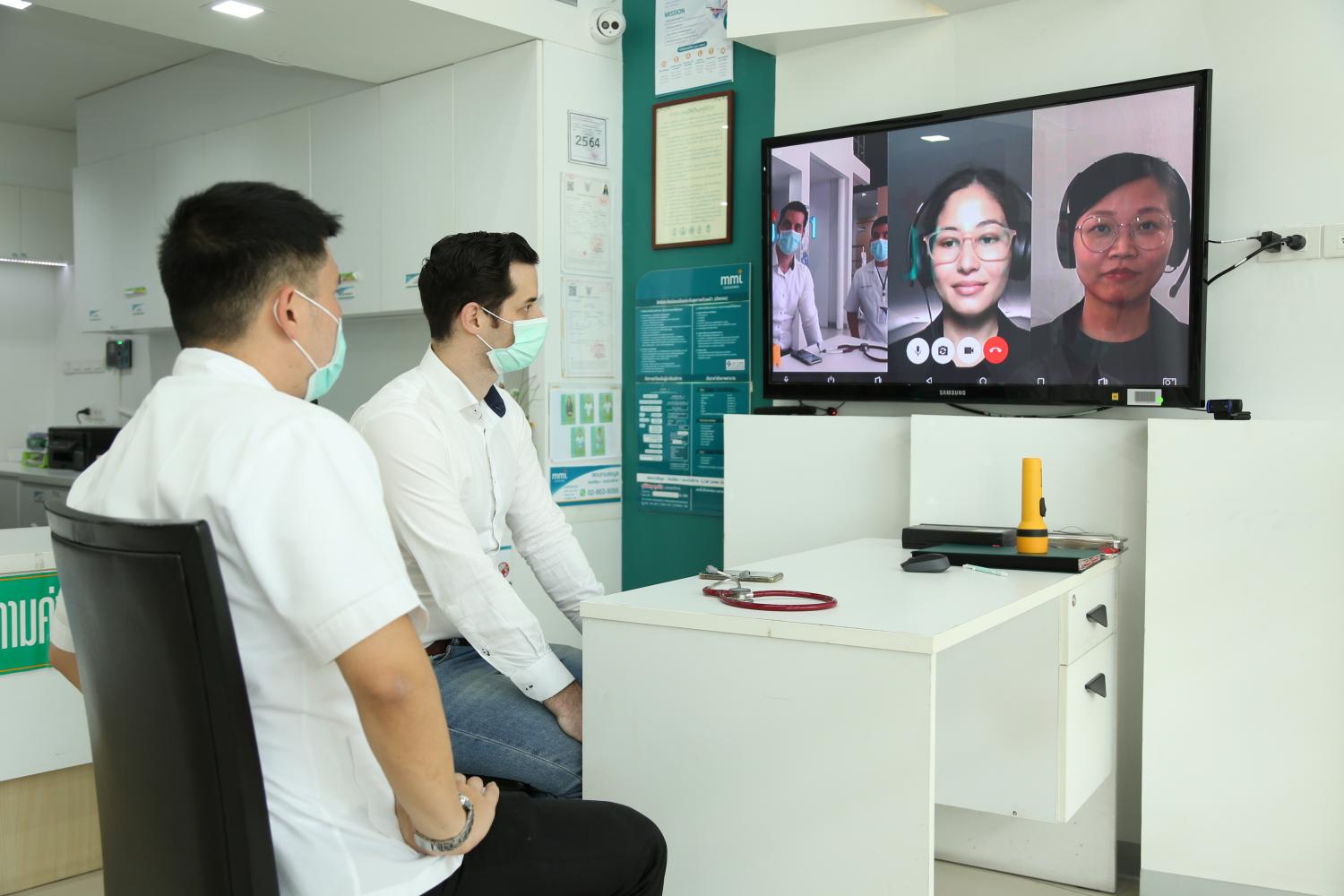Promoting optimal healthcare for all types of people regardless of sexual or gender preference should be practised across the board. Yet, constraints such as lack of specific education and training for healthcare workers, plus medical providers' limited understanding and awareness of LGBTI patients who have different health needs all contribute to silent suffering in a country where their existence is still marginalised.
In an attempt to address the issue head-on, Borderless Healthcare Group, a global pioneer in the consumer-centric healthcare economy, has launched home-based LGBTI medicine in Thailand via a cloud-based technology platform called Borderless.lgbt.
This initiative makes them one of the first health and wellness cloud founders dedicated to providing instant access to content, services and innovation from global LGBTI experts, who will be working with Thai physicians to create a new LGBTI economy.
Dr Wei Siang Yu, founder and chairman of Borderless Healthcare Group, said their goal is to normalise LGBTI-related medicine for the community -- estimated to be over 400 million globally -- and provide top-notch online-to-offline health and wellness services.
"What is wonderful about technology is that global LGBTI experts can provide 'cloud care' to individuals across borders whether they are in a clinic, a hotel or even in the confines of their home. This makes even more sense during the pandemic when staying indoors is recommended."
With Thailand's diverse and eclectic LGBTI community, Dr Wei said it was an obvious choice to be their launchpad.

A Thai doctor provides co-care to a patient along with an international specialist and multilingal case manager. (Borderless Healthcare Group)
"Thailand has a large and active LGBTI community and a friendly culture. Moreover, it also has existing LGBTI expat communities from Russia, Europe, USA, Australia and other Southeast Asian countries, all of whom have made Thailand their second home.
"The inception of home-based LGBTI medicine can be extended to other hospitality services such as LGBTI wellness tourism, retirement, telemedicine, resorts and innovation. This will add to the existing LGBTI fabric of Thailand."
Dr Wei said that in the next three months, Borderless Healthcare Group will facilitate Thai medical practitioners to participate in cross-border knowledge exchange with other international medical professionals to transform Thailand into a unique international LGBTI medical hub with seamless "cloud care" capabilities between local and international doctors to serve LGBTI individuals with sound medical know-how.
The creation of an LGBTI knowledge superhighway via Borderless.lgbt is expected to give rise to a new sustainable economy and transform the potential of Thailand and its hospitality economy, which has been impacted by Covid-19.

Local physicians can also offer educational content. (Borderless Healthcare Group)
In most countries, Dr Wei said there are only a few hospitals that have a department for LGBTI-related cases despite the fact that medical practice is in an era of transition. "Most in the medical field have not changed their thoughts to understand the consumer and that is why they do not know what patients prefer. To meet the demands of the LGBTI community, doctors need to adapt. They need to listen and not just be preoccupied with the treatment process. Traditional methods have become obsolete, so the faster this happens the better it will be for both patients and doctors.
"Borderless.lgbt is timely because we cannot wait for hospitals to provide state-of-the-art LGBTI medical departments staffed with experts treating the needs of this community. Today, we can put everything on the cloud and democratise LGBTI medical services, so even medical facilities with no know-how can tap into this knowledge."
On just how much of this is tailor-made for the LGBTI community, he said there are still no hospitals that have a complete multi-disciplinary LGBTI medical practice.
"The platform is definitely tailor-made for them in the sense that it addresses their needs. One example is their reproductive health. The lesbian community is very interested in freezing their eggs but when you look at the science, a lot goes into the procedure. So, communication between patients and doctors is crucial and should be done with care and respect. The process can cover everything from what they eat, how they rest and how to make sure that the quality of the eggs at the time of extraction is at its best."
Dr Wei shared how it was important for physicians to change their mindset with the advent of a new medical culture and align it with their patients' requirements which have evolved from the past.
"The manner with which our society accesses medical data today has changed. Instead of depending on the doctor to provide them with all the information, they go online to research their ailments prior to visiting their physician.
"Due to this, the concept of healthcare today is not about how to treat a person but rather how they can predict. We are entering into a new era of prediction and precision healthcare with a consumer-centric approach."

